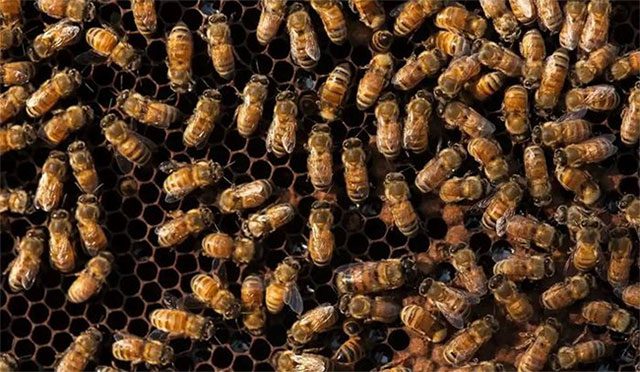The world’s first vaccine for honeybees has raised hopes for a new method to combat the devastating diseases affecting bee colonies.
The U.S. Department of Agriculture (USDA) has granted a conditional license for a vaccine produced by the biotechnology company Dalan Animal Health to help protect honeybees from diseases.

This vaccine is a breakthrough in protecting honeybee species.
Annette Kleiser, CEO of Dalan Animal Health, stated: “Our vaccine is a breakthrough in protecting honeybee species. We are ready to change the way we care for insects, impacting food production processes on a global scale.”
This vaccine will initially be provided to commercial beekeepers to help combat American foulbrood disease caused by the bacterium Paenibacillus larvae, which can weaken and kill bee colonies. Currently, there is no cure for this disease, so when colonies are infected, beekeepers must burn the hives and use antibiotics to prevent its spread.
Keith Delaplane, an entomologist at the University of Georgia, who collaborated with Dalan to develop the vaccine, remarked: “This is something beekeepers can easily recognize because the disease will turn larvae a slightly opaque color, remove wrinkles and cause them to rot.”
The vaccine works by combining certain bacteria found in royal jelly, which is secreted by worker bees to feed the queen bee and larvae. The queen larvae then become immune to the Paenibacillus bacteria upon emergence. Dalan’s studies indicate that this mechanism of action will reduce mortality rates from American foulbrood disease.
Dalan Animal Health has indicated that with this breakthrough, they may also find vaccines for other diseases affecting bees.
Many wild bee species are experiencing alarming declines due to habitat loss, the impact of human pesticide use, and climate change. This raises concerns about a global insect population crisis, threatening ecosystems, food security, and human health.


















































